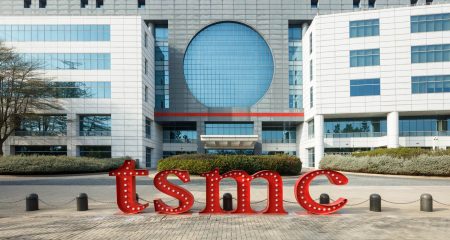 The so-called phase-one US-China trade pact has done little to allay fears about Huawei Technologies’ prospects and those of its key suppliers, two analyst research reports suggest.
The so-called phase-one US-China trade pact has done little to allay fears about Huawei Technologies’ prospects and those of its key suppliers, two analyst research reports suggest.
Morgan Stanley and Credit Suisse warned of the likely trickle-down impact of US sanctions on Huawei should they remain in place or be tightened even further. Restrictions could slow the pace of China’s 5G networking roll-out, which would affect Taiwan Semiconductor Manufacturing Co and fellow technology and manufacturing providers, one report said.
Tensions over tech are likely to remain as the Trump administration considers steps to further limit the ability of American companies to supply Huawei. This comes even as US treasury secretary Steve Mnuchin said on Wednesday he doesn’t “view Huawei as a chess piece” in continuing negotiations with China.
Morgan Stanley analysts forecast Huawei’s total smartphone volume at 200 million this year, a decline of 40 million from 2019. Without regaining access to the Google Mobile Services suite on Android, Huawei’s “smartphone shipments would be close to zero in Western Europe”, said the analysts. That compares to shipments of 29 million units in 2018 and 21 million devices through the first three quarters of 2019 for the region, they added. The European market had served as a catalyst for Huawei’s consumer division, which was itself the biggest growth engine for the Chinese company.
Ripple effect
Closer controls on Huawei would also impact its key suppliers. Chip-making giant TSMC, which counts Huawei as its second largest customer after Apple, relies on its semiconductor orders for 10% of revenue, according to Bloomberg data. Credit Suisse wrote that TSMC would lose a chunk of that business in the event of increased sanctions, though the hit would be partially offset by other customers like Apple and AMD expanding their orders. TSMC reports earnings later today, hoping to shake off a two-day decline in share price amid added uncertainty about US pressure.
Some Asian tech names stand to benefit under new supply chain scenarios, Samsung Electronics most notable among them. It’s expected to soak up the Western Europe smartphone demand that would emerge without competitive Huawei devices on the market, Morgan Stanley said. Credit Suisse echoed the positive sentiment, adding that the Samsung LSI chip-making division would “benefit supplying the mid-tier Qualcomm chips and Exynos family” in the absence of Huawei from key global markets. — Reported by Vlad Savov, with assistance from Cindy Wang, (c) 2020 Bloomberg LP




